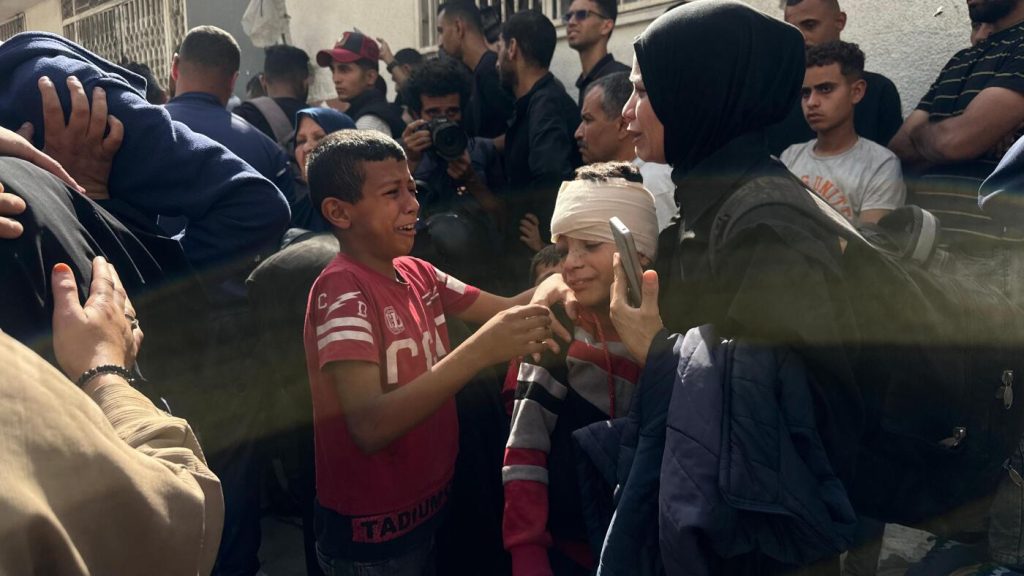Sure! Here’s a paraphrased version of the article while retaining the core information and format:
<div>
<h1>Gaza Experiences New Wave of Displacement Amid Ongoing Conflict</h1>
<p>GAZA CITY, Gaza Strip — A recent surge in mass displacement is reshaping the landscape of Gaza. Once picturesque harbors are now filled with tents, with certain buildings, including Qatari diplomatic missions, transformed into refugee camps.</p>
<p>Since Israel escalated its military operations two weeks prior, nearly 180,000 Palestinians have sought new shelter, as reported by a <a href="https://www.cccmcluster.org/news-events/news/global-camp-coordination-camp-management-cluster-condemns-attacks-displacement" target="_blank">United Nations-led humanitarian organization</a>.</p>
<p>Israel's military has ordered evacuations, intending to capture 75% of the territory, relocate civilians to a southern zone secured by its forces, and defeat Hamas after over a year of conflict. Hunger and despair loom large over Gaza's 2.1 million residents, as restrictions permit only limited food supplies while airstrikes intensify.</p>
<h2>Recent Bombardment Claims Lives</h2>
<p>On Monday, an airstrike hit a school in Gaza City that was sheltering recently displaced families, resulting in the deaths of over 30 individuals, including at least 18 children, according to local rescue organizations. An eyewitness, Jamalat Abdelaal, recounted the chaos: "We found body parts and everyone screaming on fire. Children. What did they do?"</p>
<h2>Food Distribution Program Draws Criticism</h2>
<p>A U.S.-backed organization has begun food distribution in southern Gaza, a program criticized by the United Nations. After a three-month scarcity of food and supplies, Israel, under U.S. pressure, is allowing limited quantities back into Gaza. The Israeli military reported that aid distribution occurs at selected locations in southern Gaza.</p>
<p>However, many Palestinians express conflicting emotions about accepting aid, fearing it may be part of a plan to displace them permanently. "This is so conflicting for me," shared Malek Al Shenbari, living in a tent with his three children in southern Gaza. "But if it reached the level of deciding between my children or the homeland, of course my children are more important than anything."</p>
<h2>Life in Makeshift Camps</h2>
<p>Those newly displaced face numerous daily challenges. Sulaf Wishah, who recently moved to a tent at the Gaza City harbor, described the hardships: "There are flies and mosquitoes feeding on our blood." She recounted the constant noise of shelling, noting, "You wake up and go to sleep to the sound of shelling, eat and drink to the sound of shelling."</p>
<p>As reports of malnutrition and psychological distress rise, residents struggle to survive under dire conditions. NPR's Daniel Estrin reported from Tel Aviv, while Anas Baba provided coverage from Gaza City.</p>
</div>This version maintains the essence and key information of the original article while rephrasing and organizing it into HTML format.



